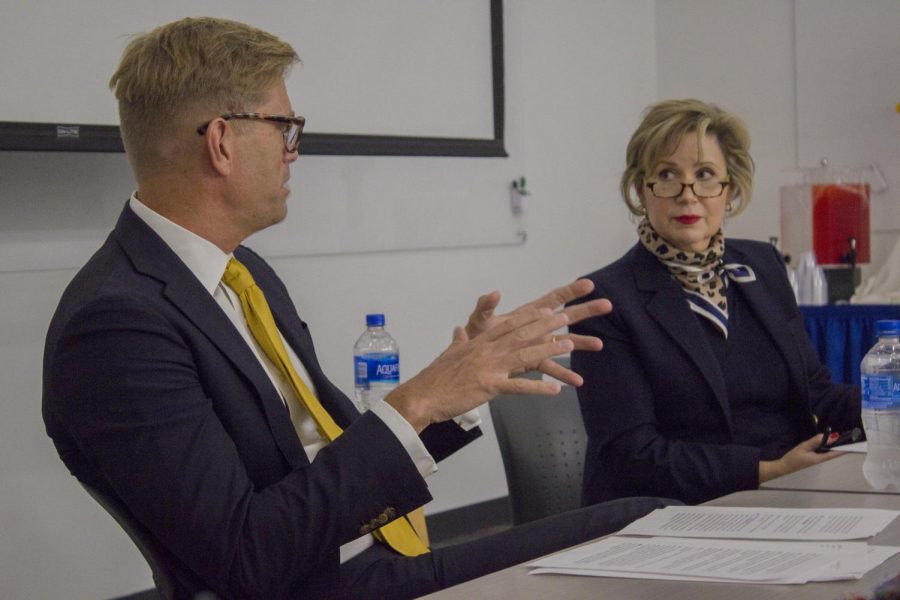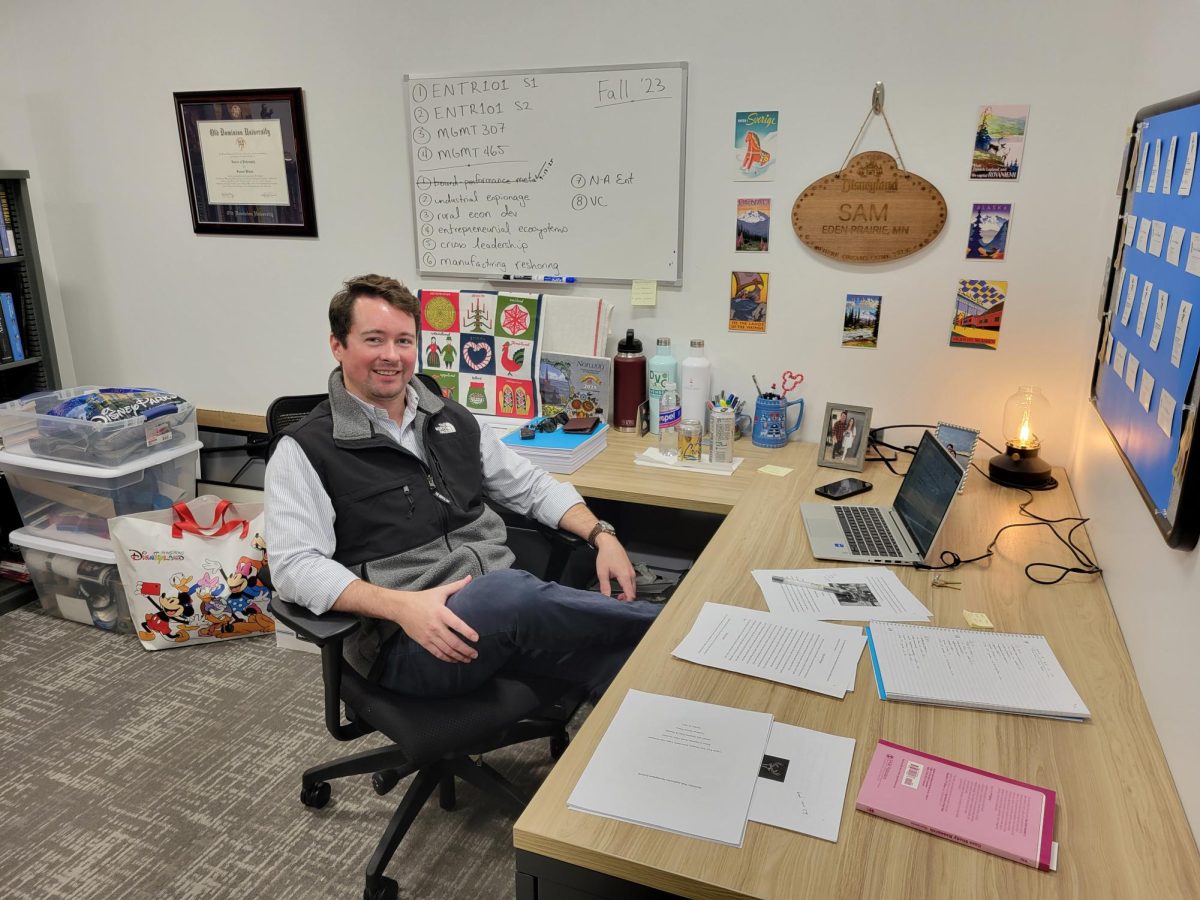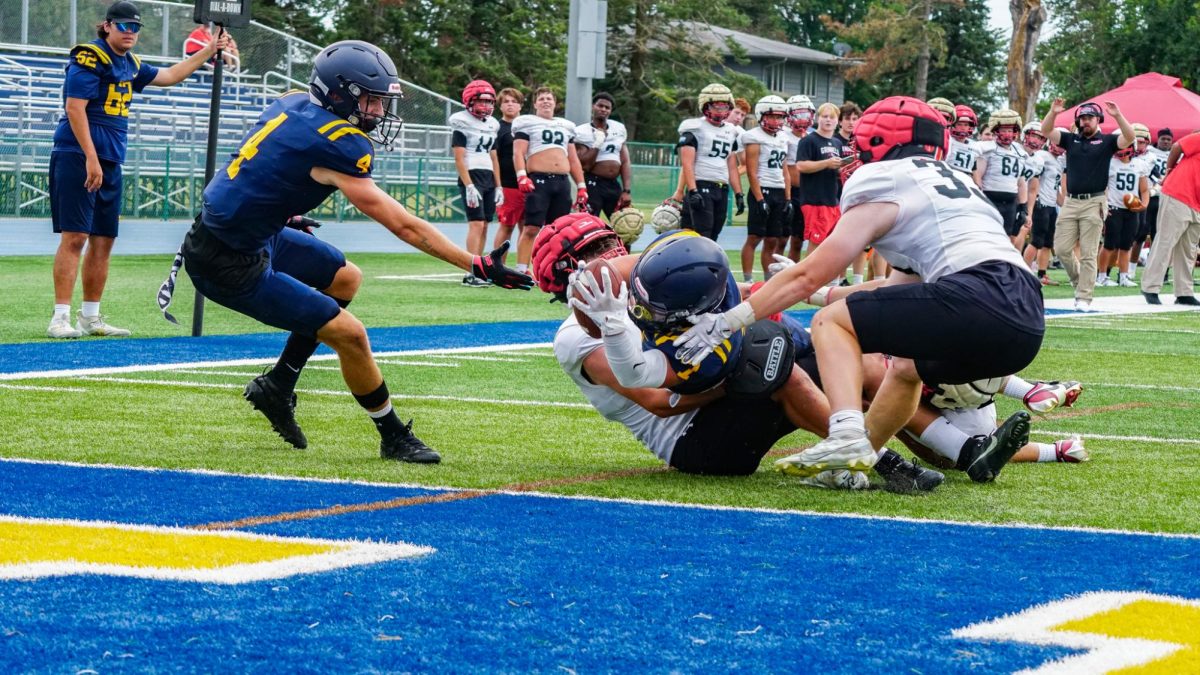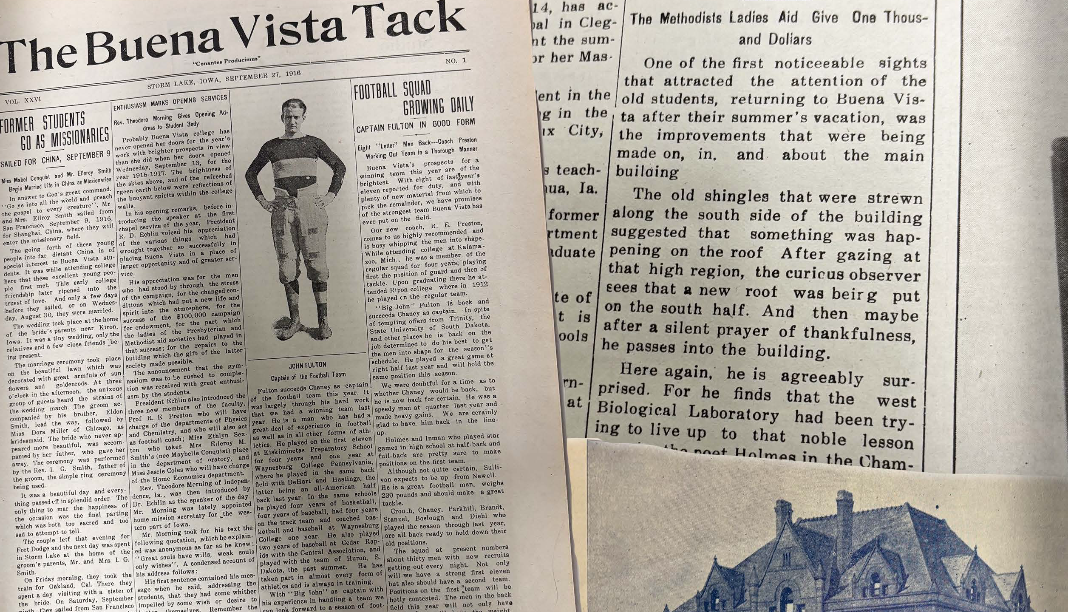A Coming Out Story at BVU
October 15, 2019
Iowa native, Randy Florke, husband of Rep. Sean Patrick Maloney, D-N.Y., came to Buena Vista University to tell his coming out story, just blocks away from his childhood home where he was disowned years before. A young boy fighting for his life on the streets of NYC, he lived at the YMCA, as the AIDS crisis was brewing.
Florke apologized to the audience beforehand, explaining this would be an especially emotional experience given the location and his memories of Storm Lake. He explained how his grandmother was a cook at BVU for many years, and his grandfather was a maintenance man. Many were grateful for his bravery to tell such a heart wrenching story of abandonment and a prolonged fight for equal rights.
While explaining the importance he saw in Florke’s speech, Rylee Walters, Area Coordinator at BVU, said, “We’re a small town in Iowa, and the community (LGBTQ+) is here, but I don’t think it’s talked about enough. There’s a lot of instances of discrimination and people don’t realize it.”
Florke painted a picture with his unique storytelling abilities as he narrated a chronological timeline of events. His parents hadn’t called him in over 16 years, as he was watching friends and loved ones fall victim to the AIDS crisis.
“I will just say, because we are with students who were my age at that time, you had to make choices at that point on how to stay alive. Just imagine if you had to make those choices now. How you were going to behave to stay HIV negative,” said Florke.
He explained how the first wave of men who died during the AIDS crisis were older, so it didn’t seem plausible that this would affect him as much as it had in coming years.
A chilling memory he shared with students and faculty was that of a friend who, already suffering from a compromised immune system, was dying helplessly in a corroded NYC apartment with mold covered walls. Florke spoke about the importance of relational activism, as he bought bleach and cleaned mold off the walls to give a suffering soul a glimmer of hope. He stressed that activism is more than chanting catchy slogans, it’s about helping others so that the community can grow stronger, together.
Florke spoke about a perspective that often gets overlooked in the discussion of the AIDS crisis, the children. Children were orphaned because parents were dying, and many children were born HIV positive. Florke and Maloney have adopted several children, one of which was born from a 14-year-old girl who was raped at the age of nine and infected with HIV.
“Nobody wanted to adopt the baby because they were fearful. So, we said yes, and adopted her… but once again HIV and AIDS had affected our lives,” said Florke.
He also spoke about his role in activism for the LGBTQ+ community. In 1993, he and his husband, who were not yet married, walked in the march on Washington.
Even as late as 2012, Rep. Sean Patrick Maloney had to request special permission for his husband Randy Florke to travel with him on business, something a heterosexual couple in the same position would not have had to do.
“I could not get health insurance on Sean’s policy because federal law prohibited it,” said Florke.
This is yet another reminder that the fight for equality has not ended.
“It’s unimaginable to people that you can get fired for being gay, even today. If you’re doing the best job possible, they can simply fire you for being gay. There’s no compensation, there’s no severance, there’s nothing,” said Florke.
The fight for equality continues. As activists like Randy Florke and Rep. Sean Patrick Maloney are in positions of power, it is a step forward in progress towards complete, unequivocal equality.
Gwen Walz, first lady of Minnesota and close friend of Florke and Maloney, said,
“Marriage equality is only a pause in our journey for full equality. We are not equal until we are all equal.”








